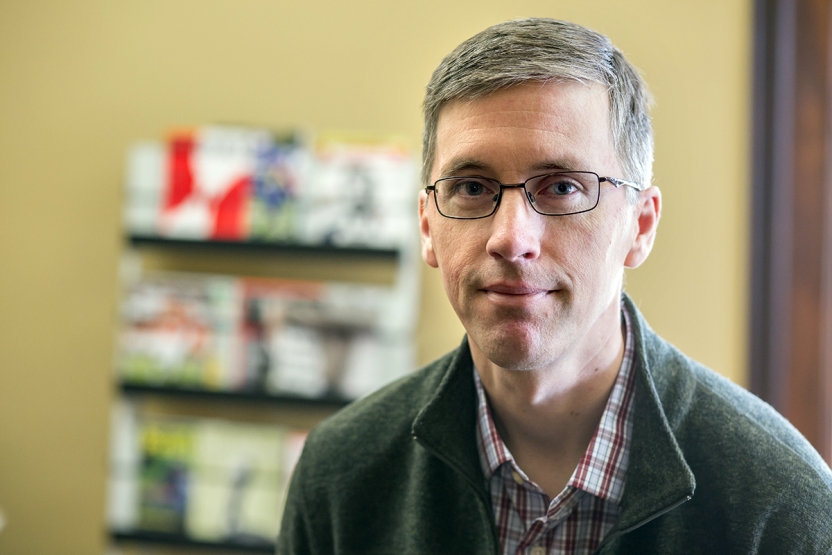Prof. William Pyle Wins Russian Economics Prize

MIDDLEBURY, Vt. – Professor of Economics William Pyle has won the Russian National Prize in Applied Economics with his colleague and co-author Laura Solanko, a researcher at the Bank of Finland. The prize, considered the most prestigious award for research on the Russian economy, comes with a 1.5 million-ruble cash award (approx. $42,000 U.S. dollars).
“It came as a huge surprise,” said Pyle. “I didn’t even know that our paper was going through the nomination process.”
Pyle says that when he received the award notice via email, he started to distrust his own Russian language skills. “I read it, and I thought I understood it, but I wasn’t quite sure because it seemed so out of the blue.” Pyle confessed that he double-checked with Google Translate just to be sure he fully understood.
Pyle and Solanko’s paper, “The Composition and Interests of Russia’s Business Lobbies” (Public Choice, 2013), was one of 20 papers nominated by the review committee. The process of adjudication goes through several rounds, narrowing to six papers from which the winner is selected.
This was the third of three major journal articles resulting from a major survey Pyle conducted nearly 10 years ago as an assistant professor at Middlebury.
“Most of my research, going back to graduate school, has been using Russia in a sense as a laboratory to understand the institutions that evolve in a new market setting,” said Pyle. “I was really interested in why firms come together and establish nonprofit organizations to represent their interests.”
Pyle, who is also an affiliate with Middlebury’s programs in International Politics and Economics and Russian and East European Studies, was a visiting researcher at the Bank of Finland when he met Solanko, who had researched lobbying in Russia. Pyle suggested that they collaborate on further lobbying research based on the data he had gathered.
The biennial prize, which was established in 2009, is the collaborative effort of several Russian institutions, including the National Research University Higher School of Economics; the New Economic School; the Ural State University; the Institute of World Economy and International Relations of the Russian Academy of Sciences; the Association of Russian Economic Research Institutes; and the business magazine, Ekspert.
By Stephen Diehl, photo by Matthew Lennon ‘13.

